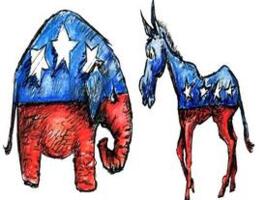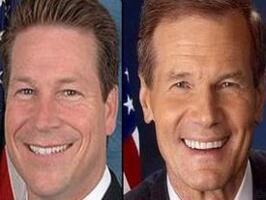Core Four States: Obama 46%, Romney 43%
With the Republican primary race all but settled, President Obama still holds a slight lead over likely GOP nominee Mitt Romney in combined polling of the key swing states of Florida, North Carolina, Ohio and Virginia.
New Rasmussen Reports telephone surveying of Likely Voters in the so-called Core Four states finds that Obama picks up 46% support to Romney’s 43%. Seven percent (7%) prefer some other candidate, and four percent (4%) are undecided. (To see survey question wording, click here.)
The survey of 1,271 Likely Voters in Florida, Ohio, North Carolina and Virginia was conducted on April 16-30, 2012 by Rasmussen Reports. The margin of sampling error is +/- 3 percentage points with a 95% level of confidence. Field work for all Rasmussen Reports surveys is conducted by Pulse Opinion Research, LLC. See methodology.







